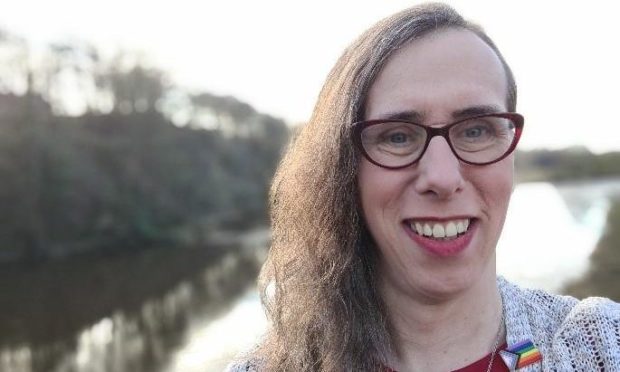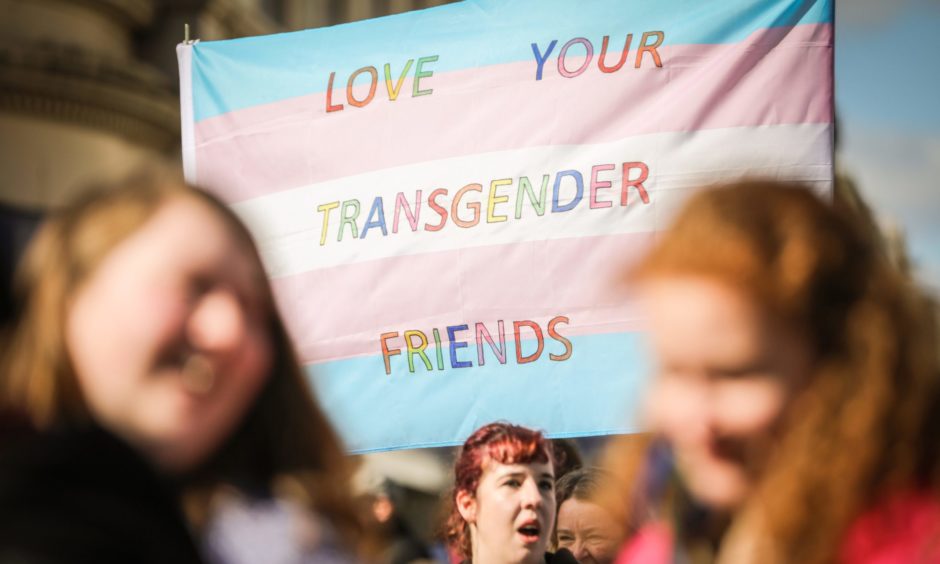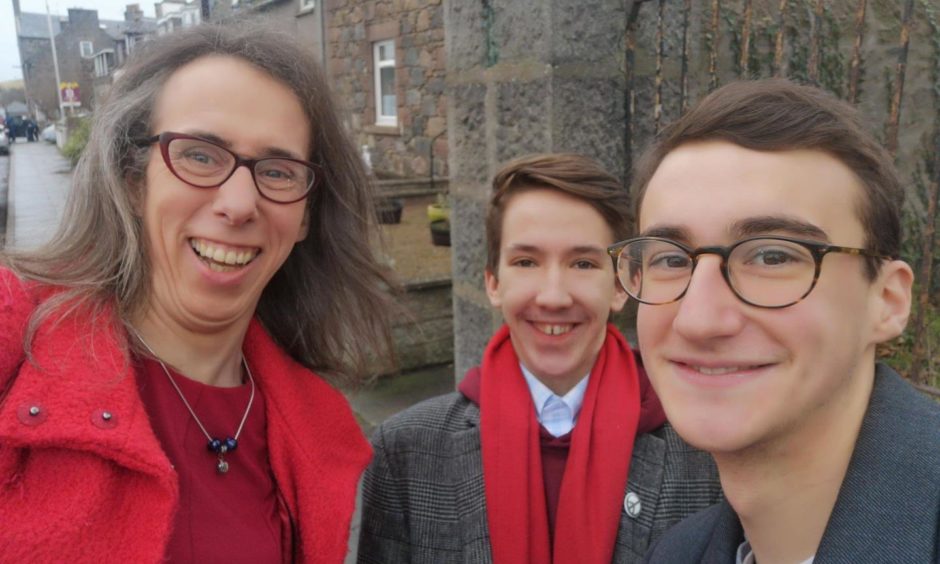Heather Herbert once thought being trans meant exclusion from elected politics, fearing alienation and ridicule from others.
It was street activism, such as attending anti-war demos and campaigning against hospital closures, that first got the Scottish Labour candidate actively involved in politics.
However, it was only after attending an event organised in Manchester by LGBT+ Labour around four years ago that she began to see a future for herself in elected politics, after initially being concerned she would “alienate people”.
There has never been an openly trans MSP at Holyrood, nor among the MPs at Westminster, and Ms Herbert, who is standing for election in Aberdeen Donside, would like that to change.
“Much of the fear that revolves around gender identity and trans people is because people don’t know what it is,” she tells me.
“We’re 1% of the population, more or less, so a large chunk of people will never bump into a trans person so it’s easy to demonise us and think of us as ‘others’.
“A trans person being in Holyrood, you become another colleague, you become another MSP, a person that people interact with and they see you not as an evil ‘other’ person but as a human being.”
Trans rights debate
It has been “demoralising at times” and “frustrating” to witness the fierce debate around gender identity that has reached fever pitch over the last few years, she says.
The 45-year-old would like the Gender Recognition Act reformed, but thinks what trans people want more is to see treatment waiting times reduced.
She had to wait around 18 months for treatment – a period she describes as the “worst” – of her life but the parliamentary candidate says she has friends in Glasgow who have had to wait as long as three years.
She says: “Waiting times, even before Covid-19, people could spend three years on a waiting list even just to have an assessment before they get any treatment at all.
“I remember back then they were probably the worst two years of my life, moving things forward for myself but being blocked by the NHS because of funding.”
In terms of abuse online, Ms Herbert says she screens calls and has set up Twitter in such a way that she only sees replies from people she follows so she does not have to “see the abuse if it occasionally gets thrown my way”.
However, she has yet to have a negative interaction with a voter on the basis of being trans and thinks that prejudice often comes from “misunderstanding”.
She adds: “When you think about prejudice, there’s an assumption that it’s all based on malice and I don’t think it is.
“A lot of prejudice that happens is unjustified concern. When I put my name forward to run for a council position, there was a lot of discussion with some of the members.
It comes back to a lack of understanding and familiarity with trans people and a lack of positive role models.”
“People were concerned for how other people would treat me so they decided not to vote for me to be the candidate because of a concern for my safety.
“That’s a form of prejudice because it’s an assumption that other people will be prejudiced whereas they’re not but it has still held me back slightly.
“On the other side of that is people who are deliberately hurtful or hateful but the majority of people are not those.
“A lot of prejudice is misunderstanding and what you might think of as concern which is unjustified.
“It comes back to a lack of understanding and familiarity with trans people and a lack of positive role models.”
Future of oil and gas jobs
On her main priorities for Aberdeen Donside and the north-east more widely, Ms Herbert says jobs is the “number one issue”.
The transition away from fossil fuels and towards cleaner forms of energy production has been an issue that has ignited during this Holyrood election campaign, with parties disagreeing over how quickly this should come about.
Ms Herbert says: “Oil and gas jobs are the bread and butter jobs up here. Those are changing and those are going away to a degree, even prior to Covid-19, there was more and more unemployment.
“Not huge amounts but increasing levels of unemployment. Those jobs can be replaced by green jobs, we’re moving to a green industrial revolution.
“Most of those wind turbines and green energy infrastructure is outsourced to places like China and abroad, rather than the jobs being kept in the north-east and Scotland more generally.”
On the constitution, she unsurprisingly agrees with her party’s leader, Anas Sarwar, that the next parliament must focus on the Covid-19 recovery.
She adds: “We’ve seen with Brexit how divisive those kind of constitutional issues can be and how it can set people against each other.
“We need to pull together, we’ve taken a huge knock over the last year, both in terms of jobs but also people’s mental health and physical health, everything has been affected.
“We really do need to work together to help people.”
It comes back to a lack of understanding and familiarity with trans people and a lack of positive role models.”


